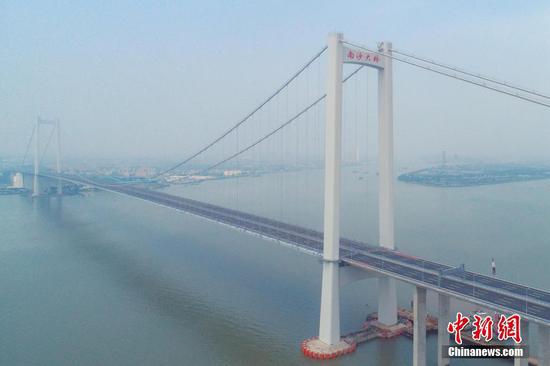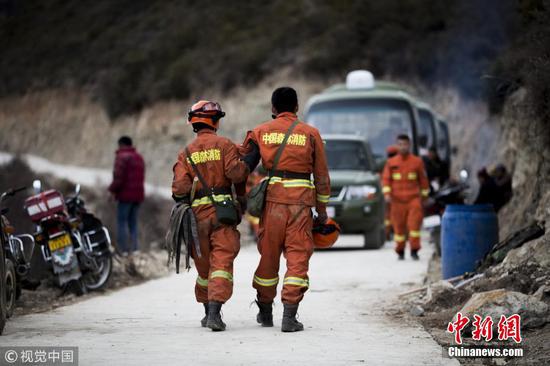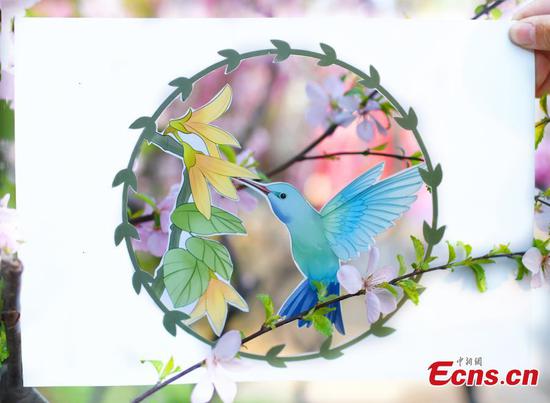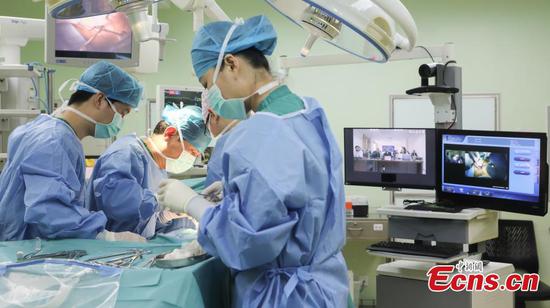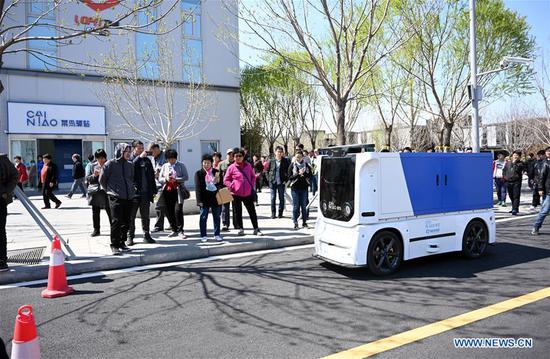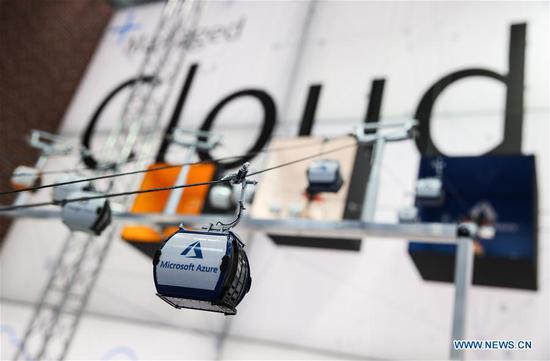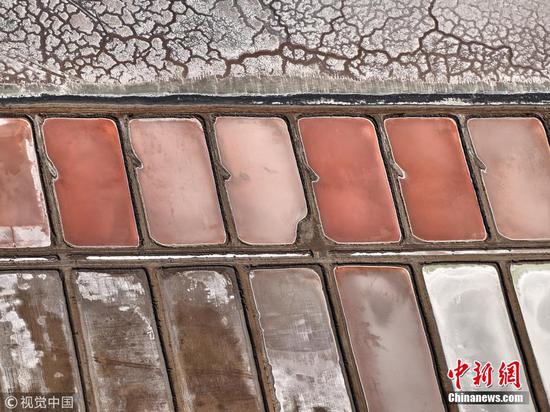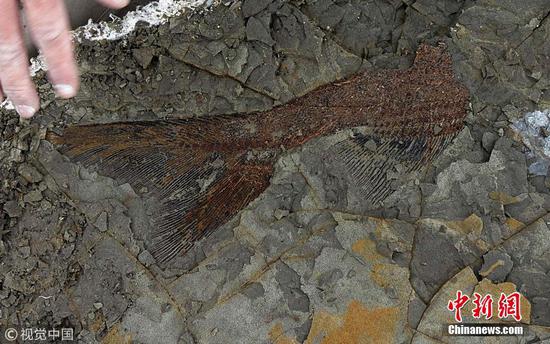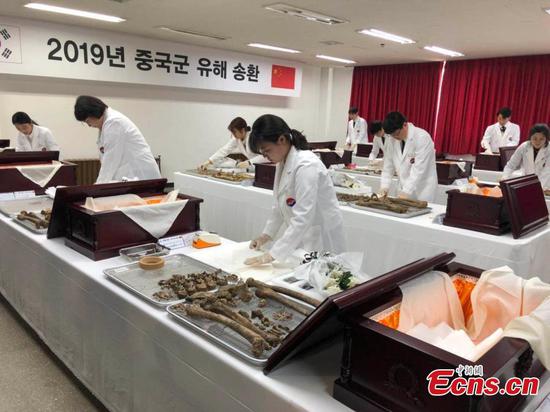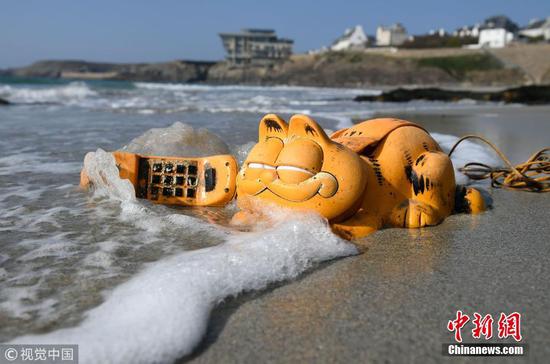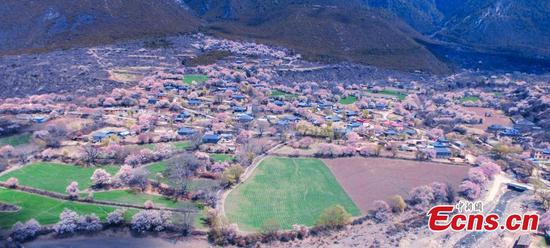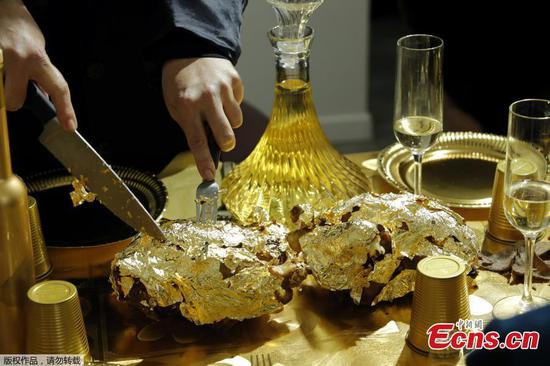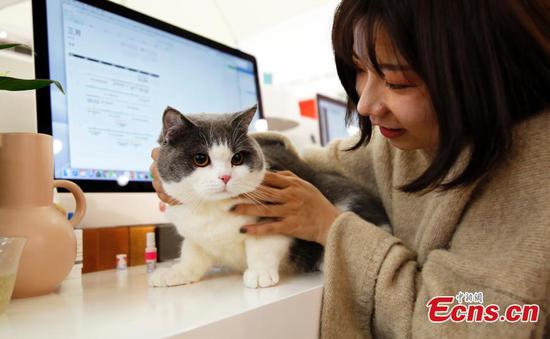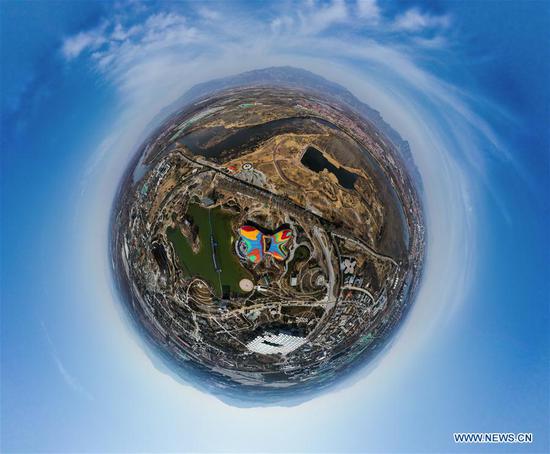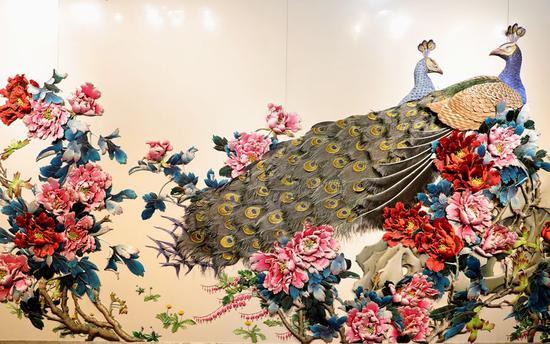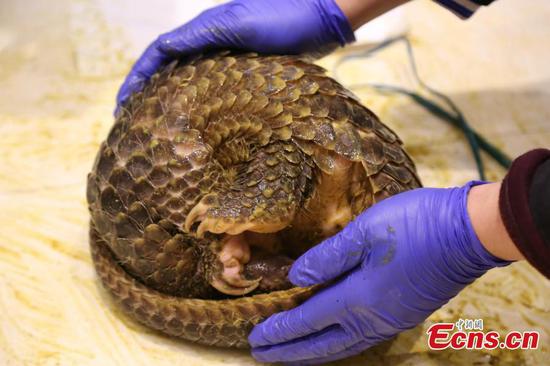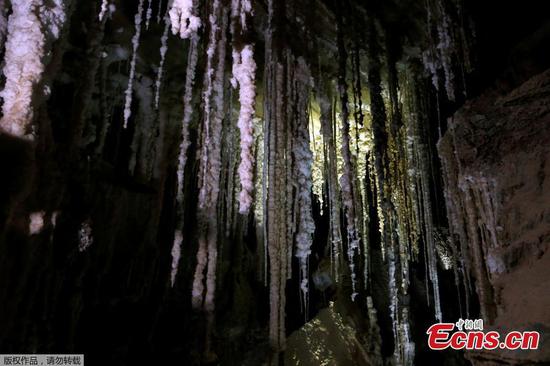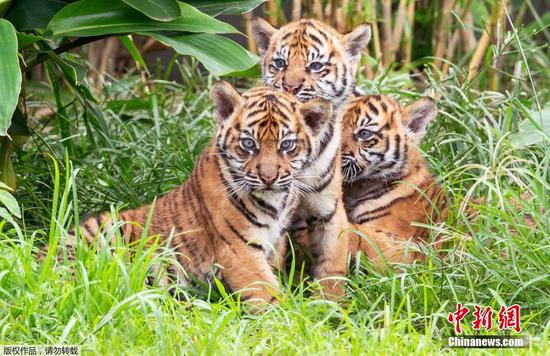When a pregnant sperm whale with 22 kilos of plastic in her stomach washed up dead over the weekend on a tourist beach at Porto Cervo, a renowned summer holiday destination on Italy's Sardinia island, environmentalist organizations were quick to highlight the need to fight marine litter and plastic pollution.
"The first thing that emerged from the autopsy is that the animal was very thin," marine biologist Mattia Leone, vice president of a Sardinia-based non-profit called Scientific Education & Activities in the Marine Environment (SEA ME), told Xinhua on Monday.
"She was about eight meters long, weighed about eight tonnes and was carrying a 2.27-meter fetus," Leone recounted of the dead sperm whale, a species she described as "very rare, very delicate," and which has been classified as being at risk of extinction.
Female sperm whales reach adulthood at seven years of age and become fertile every 3-5 years, meaning that given her relatively small size -- full-grown males can reach up to 18 meters in length -- the beached specimen was likely a first-time mother-to-be.
An analysis of her stomach contents showed that she had eaten black trash bags, plates, cups, pieces of corrugated pipe, fishing lines and nets, and a washing machine detergent container with the bar code still legible, Leone said.
"Sea animals are not conscious of what we do on land," Leone explained. "For them, it is not normal to encounter things at sea that are not prey, and floating plastic looks a lot like squid or jellyfish -- the staple foods for sperm whales and other marine mammals."
Plastic is not digestible, so it accumulates in the stomachs of animals, giving them a false sense of satiety. "Some animals stop eating, others, such as turtles, can no longer dive below the surface to hunt for food because the plastic in their stomachs fills with gas, while others fall ill because plastic undermines their immune systems," Leone explained.
"We are seeing an increase in beached cetaceans every year," Leone said. "Now is the time to seek out alternatives to plastics, as we are doing with many other things, for example renewable energy. We have evolved, and technology has made giant steps forward, so we can surely find a biodegradable material to substitute plastic."
One such alternative has already been invented by Catia Bastioli, founder and CEO of a biodegradable plastics manufacturer called Novamont. In 2017, Italy banned the use of plastic bags in supermarkets, substituting them with biodegradable bags manufactured by Novamont.
For Bastioli, a culture change must occur before humanity can say goodbye to plastics once and for all. "Plastic is not good or bad, it is a technology, and like all technologies, its benefits depend on how it is used," Bastioli, a chemist by training, told Xinhua in a recent interview.
"The point is that we have to rethink and redesign the entire system in a circular perspective, consuming as few resources as possible, using plastics wisely and only when really necessary. In short, we cannot think of an unlimited growth for this kind of product," said Bastioli.
Bastioli's invention of starch-based bioplastics earned her a 2007 European Inventor of the Year award from the European Patent Office, and has been awarded the Order of Merit and been made a Knight of Labor by presidents of the Italian republic (Sergio Mattarella in 2017 and Giorgio Napolitano in 2013).
"We must consider that 80 percent of marine pollution is caused by the poor management of wastes on land: if we improve end-of-life management, we also contribute to reducing marine litter. On an overpopulated and overexploited planet, too often we look at the consequences without thinking about the causes," said Bastioli, who has collected numerous awards for her pioneering work as a socially responsible scientist and entrepreneur -- including a Golden Panda in 2016 from the World Wildife Fund (WWF) environmental organization.
In a statement released on Monday, the Italy office of WWF, has already gathered close to 600,000 signatures on a global petition to the United Nations called "Stop Plastic Pollution" said that one-third of sperm whales found dead in the Mediterranean had their digestive systems clogged up by plastic, which makes up 95 percent of marine litter.
If humans don't make a change, "by 2050 the world's seas will contain more plastic than fish," said the WWF, which also pointed out that according to a Eurobaromoter survey, 87 percent of Europeans are concerned over the impact of plastic on health and the environment.
On a global level, Europe is the second largest plastic producer after China, dumping up to 500,000 tons of plastic products into the sea every year, according to WWF estimates.
Sunday's discovery of the dead sperm whale came after lawmakers at the European Parliament voted 560 to 35 last week to ban single-use plastic by 2021. The European decision follows China's 2018 decision to stop importing plastic waste, the South China Morning Post reported on Monday.
The EU's move was welcomed by the Italian environmentalist association Legambiente, whose President, Stefano Ciafani, pointed out that Italy has not only banned plastic supermarket bags but also plastic-based Q-tips and microplastics in cosmetics.
"We call on the government to immediately summon all stakeholders -- producers, local administrators, consumers, environmentalist associations -- to accompany the transition and render effective the deplastification process," Ciafani said.
According to environmentalist NGO Greenpeace, every minute the equivalent of a truckload of plastic ends up in the world's oceans, causing the death by suffocation or indigestion of 700 different animal species -- including turtles, birds, fish, whales and dolphins -- who mistake the litter for food.
Over eight billion tons of plastic products have been manufactured since the 1950s, and currently 90 percent of single-use plastics is never recycled, according to Greenpeace.









